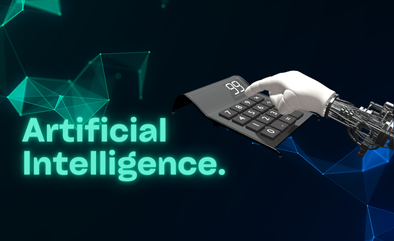Artificial Intelligence (AI) and Machine Learning (ML) are no longer just futuristic concepts—they're actively reshaping industries and the way we live. From voice assistants to self-driving cars, these technologies are making everyday tasks easier, improving efficiency, and driving innovation across multiple sectors.
But what exactly is AI? At its core, AI refers to machines that can mimic human intelligence, while ML, a subset of AI, enables systems to learn from data, refine their algorithms, and improve performance over time. These advancements aren’t just happening in research labs—they’re already transforming real-world applications in ways we never imagined.
How AI & ML Are Changing Different Industries
AI and ML have found their way into nearly every industry, creating smarter solutions and automating complex tasks.
Healthcare: Smarter Diagnosis & Personalized Treatment
AI-powered tools can analyze medical images, detect diseases early, and even assist in surgeries. Machine learning models help doctors predict patient outcomes and personalize treatment plans, making healthcare more accessible and efficient. Platforms like IBM Watson and Google DeepMind are leading the charge, helping to revolutionize medical research and diagnosis.
Finance & Banking: Enhancing Security & Personalization
AI is making banking safer and smarter. Machine learning algorithms analyze spending habits, detect fraud, and provide personalized financial advice. Robo-advisors manage investments based on real-time market trends, while AI-powered chatbots handle customer queries 24/7.
Retail & E-commerce: Elevating Customer Experience
Ever wonder how Amazon or Netflix seem to know exactly what you want? AI-driven recommendation engines analyze browsing habits, past purchases, and user behavior to suggest personalized products and content. Automated chatbots and smart inventory management systems are also helping businesses improve customer service and streamline operations.
Manufacturing: Automation & Predictive Maintenance
AI-powered robots and automated systems are optimizing production lines, reducing costs, and minimizing human error. Predictive maintenance uses AI to anticipate equipment failures, allowing companies to fix issues before they become costly problems.
Transportation & Autonomous Vehicles: The Road Ahead
Self-driving cars are no longer a thing of the future. Companies like Tesla and Waymo are using AI to improve road safety, optimize traffic flow, and reduce human driving errors. AI-driven navigation systems help vehicles analyze real-time road conditions and make split-second decisions for safer driving.
Education: Personalized Learning Experiences
AI-powered learning platforms tailor educational content to each student’s needs. Virtual tutors provide instant feedback, automated grading saves time, and smart course recommendations help learners navigate their studies more effectively.
Entertainment & Media: Smarter Content Discovery
Streaming services like Spotify, YouTube, and Netflix rely on AI to recommend music, videos, and movies based on user preferences. AI-generated content, deepfake technology, and smart editing tools are also transforming the entertainment industry.
AI in Everyday Life: More Than Just a Buzzword
Beyond industries, AI is seamlessly integrating into our daily routines. Voice assistants like Siri, Alexa, and Google Assistant understand natural language, making it easier to set reminders, play music, or control smart home devices. Facial recognition technology is now widely used for unlocking smartphones, securing transactions, and even boarding flights. AI is also helping optimize city infrastructure, traffic management, and energy consumption.
The Ethical & Social Challenges of AI
With great power comes great responsibility. As AI continues to advance, it raises important questions about ethics, security, and fairness.
- Job Displacement: AI is automating many tasks, leading to concerns about job losses in certain industries. However, it’s also creating new roles that require human expertise in managing AI-driven systems.
- Data Privacy & Security: AI relies on vast amounts of personal data, increasing concerns about privacy breaches and cyber threats. Regulations like GDPR and CCPA aim to protect users from misuse.
- Bias & Fairness: AI algorithms learn from historical data, which can sometimes contain biases. If not carefully monitored, AI could reinforce discrimination in areas like hiring, lending, and law enforcement.
- AI Governance: Governments and tech companies are working on regulations to prevent the misuse of AI while ensuring its ethical development and application.
What’s Next for AI?
The future of AI is full of exciting possibilities. Researchers are exploring AI models that can create original art, compose music, and even understand human emotions. AI is expected to play a major role in climate change solutions, smart cities, and even space exploration.
While challenges exist, responsible AI development and ethical governance will ensure that this technology benefits society as a whole. Whether in healthcare, finance, education, or our everyday lives, AI is here to stay—and its impact will only continue to grow.
Are we ready for the AI-driven future? The answer lies in how we embrace and shape this technology for the better.
How Artificial Intelligence and Machine Learning Are Transforming the Future's Tags :
AI Machine Learning Deep Learning AI Technology AI Trends Future of AI AI Automation Neural Networks AI in Business

